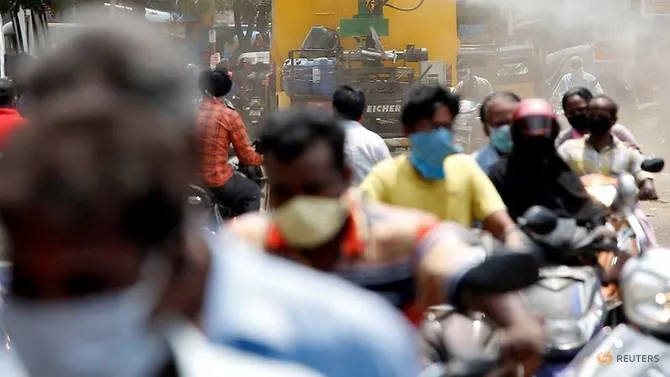India's COVID-19 alleviation plan could leave thousands without food aid: Activists
11 April, 2020

Tens of millions of Indians stand to see few advantages from a COVID-19 relief package well worth US$22.6 billion, economists and food rights activists claim, a situation that spells catastrophe for Karan Kumar, a struggling day time labourer in the administrative centre.
Surviving in cramped quarters by a construction site where activity provides been halted by a tough three-week lockdown to stem the distributed of the virus, Kumar possesses been without work to get days, unable to earn a daily wage of about US$4.
"I'm not suffering alone, my children is battling with me," said 32-year-old Kumar, who relies on his earnings to aid his wife, five children and ageing father and mother in his home talk about of Bihar, among India's poorest.
"My wife cell phone calls up and urges me personally to go back home anyhow," said Kumar, among 1,500 staff at the website. "She says that whether or not we are starving, we are hungry together."
Although India's relief package promises plenty of free food for roughly 800 million beneficiaries, economists and activists say few of those in need are registered with the federal government food welfare scheme, or have the documents had a need to secure benefits.
"I'd argue for universal (meals) insurance policy coverage of rural areas and urban slums generally in most states throughout the crisis," said economist Jean Dreze, who offers co-authored books on hunger with Nobel laureate Amartya Sen.
India's lockdown will force many more people into poverty and the government must ensure free foodstuff reaches everyone in need, Dreze told Reuters, estimating a tenth of a good population of more than 1.3 billion lacks food security now.
Without such welfare, India could be facing a full-blown humanitarian crisis, especially if the government decides to extend the lockdown, authorities say.
"Massive numbers of individuals will get pushed back to poverty," warned Nikhil Dey, who runs farm privileges group Mazdoor Kisan Sangathan.
The Indian government is monitoring the situation "very closely" and will ensure nobody goes without food, said a high government official mixed up in government food welfare scheme, who sought anonymity consistent with government policy.
While an incredible number of migrant personnel fled cities by walking for his or her homes in villages after Primary Minister Narendra Modi suddenly imposed a lockdown from March 25, others with homes a huge selection of miles aside, like Kumar, cannot return.
Modi, who has said stringent methods were necessary to deal with the virus which has killed 169 and infected in least 5,865, apologised last week for the hardship caused to the indegent.
The International Labour Corporation says welfare measures such as food aid are crucial for the roughly 380 million people who work in the informal economy, which includes everyone from veggie sellers to cobblers.
Activists tell you India is in a good comfortable position to provide handouts to the needy seeing as mounds of rice, wheat and glucose in brimming granaries leave little space for new season harvests.
At the brand new Delhi construction blog, Kumar and other labourers rest on narrow bunks in small, fly-ridden rooms, depending on erratic materials of food from a nonprofit.
"We eat the meals here because we have no other decision," said Kumar. "But what about my children? Who will support them?"
Source:
TAG(s):
